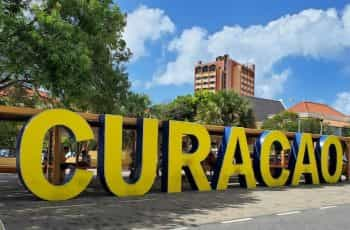Overall iGaming activity increase reported in the Netherlands by the nation’s Gambling Authority
The fourth online gambling Monitoring Report of the regulated gambling market of the Netherlands was published last week. The country’s official Gambling Authority, de Kansspelautoriteit (KSA), generated, analyzed, and published the report highlighting an increase in revenue from the iGaming segment coupled with considerable growth in new and active accounts across several platforms operated by the licensed operators in the nation’s market. In addition, the Dutch player activity on domains and platforms operated by unlicensed operators continued to decrease.

KSA reports an increase in iGaming activity.
©Tim Trad/Unsplash
Regulation of gambling activities in the Netherlands commenced in October 2021. The process started with the issuance of gambling licenses to ten operators. These included the renowned bet365 and a few local operators like Holland Casino N.V. and TOTO. These ten licenses were issued six months after the Remote Gambling Act (KOA) was passed. The Act comprises strict regulations to be followed religiously by all gambling operators that have received their gambling licenses from the KSA. Non-adherence to the Act may result in a fine or direct revocation of the gambling license. These regulations include measures to ensure player safety, offers that are banned in the Netherlands, and information regarding advertising prohibitions in the country. The player safety measures force the licensed operators to monitor the player activity on their platform and watch for players who could fall prey to excessive gambling or develop harmful gambling traits. Under the KOA, the KSA has provided detailed information about the cap on welcome bonuses offered by several licensed operators.
Several interdicted activities threaten the integrity of a regulated gambling market. The problem of match-fixing, terror financing, and money laundering is persistent in numerous jurisdictions worldwide. In the Netherlands, these threats, especially money laundering, are low. Several licensed operators have been exempted from the Anti-Money Laundering (AML) measures. However, the KSA monitors the market strictly to fight illicit activities and illegal gambling operators trying to enter the nation without a license. The positive outcome due to the KSA’s strict monitoring and measures to protect the integrity of its gambling market have also reaped the desired results. Since the legalization of gambling activities in 2021, player activity levels have only moved upward, and the continuous growth is specified in the recently published Monitoring Report. In the last six months, the number of player accounts have increased by 53 percent. In July last year, there were 563,000 accounts, whereas the number of player accounts recorded in January 2023 was 859,000.
This significant increase in player accounts and activity has contributed to the Netherlands’ increased Gross Gaming Revenue (GGR). The monthly revenue reported in January last year was €90 million. This year, in the same month, the revenue spiked 38 percent to €124 million. In addition, the Dutch Gambling Authority expects a trend growth of more than 13 percent every year. Gambling activity of young adults between the ages of 18 and 23 was recorded separately to study gambling behaviors and losses incurred in a particular period. It was noted that almost each young adult gambler had more than two accounts for gambling. In January this year, the young adults of the Netherlands were actively gambling online via 183,000 accounts. Further analysis revealed that the average loss of young adult gamblers was lesser than the losses incurred by adult players. The average loss per account of young adults came to around €54 per month, whereas the average loss per account of other adult gamblers was €142 per month.
Chairman of the KSA, Rene Jansen, summarized the fourth gambling monitoring report of the country and specified what is expected from the legal gambling operators of the country.
“This fourth monitoring report shows a growth in the market for online games of chance, as we previously predicted. This is a development that requires all of our attention. Providers of games of chance must take up their duty of care firmly and intervene in a timely manner to protect players in order to realize a safe environment. Our investigation into the implementation of the duty of care this spring shows that the duty of care is interpreted in a very broad and varied manner. It is, therefore, very important that we, together with providers, look at a clearer interpretation that protects players in the best possible way. Compliance with the duty of care is also a priority in our supervision.”
Self-exclusion made easy after CRUKS revamp
The Gambling Act of the Netherlands comprises a set of measures to ensure safer gaming and player safety. These measures include the constant connection between licensed gambling operators and the Central Self-Exclusion Register of the Netherlands (CRUKS). This register hosts several Dutch players who have decided to take a temporary or permanent break from all licensed gambling activity in the country. In April this year, the KSA announced that it had renewed the interface of CRUKS, making it easier to understand for gamblers looking for self-exclusion.
On the earlier interface, all exclusions were categorized under “play break,” confusing players who wanted to opt for a permanent exclusion from all gambling activities. In the updated interface, the KSA has added “gambling stop” to make it absolutely clear that the option excludes players permanently from all legal gambling activities. Along with this announcement, the KSA also confirmed that the number of registered players had surpassed the 38,000-mark. This marked a 65 percent increase from the number recorded in September last year.
Betent fined by KSA for targeting young adults with a TV ad
In the latest monitoring report, the KSA also shed light on the decrease in advertising on television. This decrease was due to the reduced audiences in front of TVs and the increase in online traffic. In order to target the masses, several licensed operators ceased television advertising activities and turned to digital marketing. The increase is expected to continue because the Netherlands will issue a complete ban on untargeted advertising for online gambling from July 1st this year.
Last month, the Dutch Gambling Authority slapped a fine of fourth time on licensed gambling operator Betent. The reason behind this fine was a TV advertisement for gambling that was targeted at young adults between October 2021 and March 2022. Under the country’s Gambling Act, this is prohibited, and hence the hefty fine was imposed. This was the fourth time the KSA had to issue a fine on an operator in the last six months for the same offense. Operators will not be allowed to advertise at all after June 30th as the blanket ban will cover radio, TV, and billboard ads before including online gambling promotion after the transitional period.



